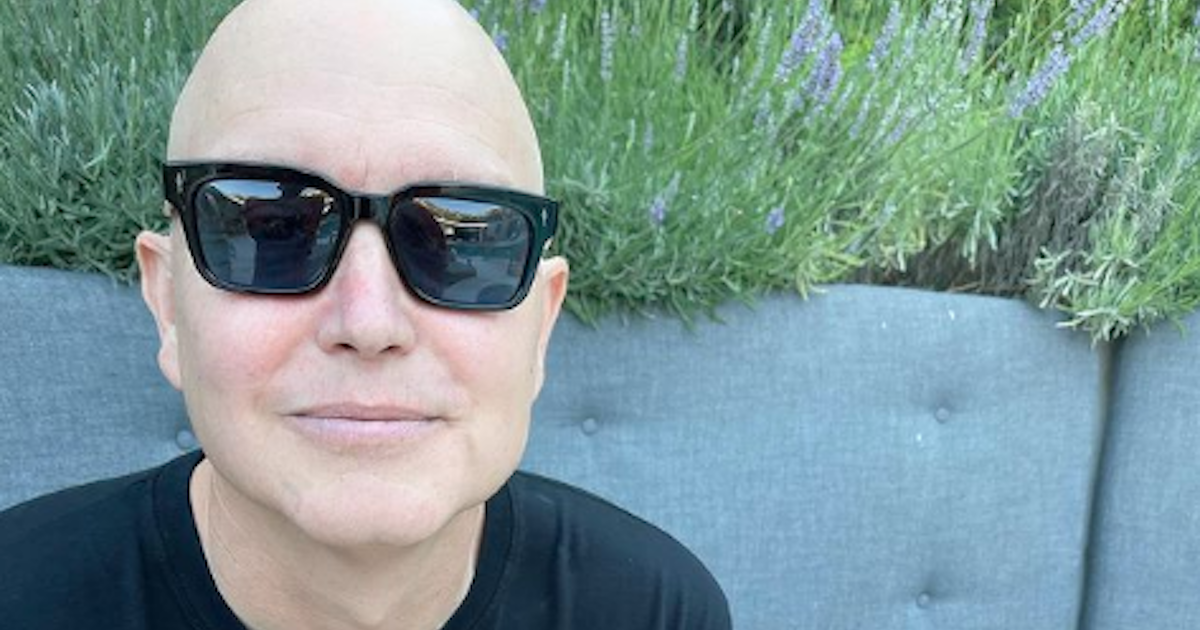Mark Hoppus Blames Brain Fog for Announcement
- In a recent interview with GQ, Blink-182's Mark Hoppus details how he accidentally told the world about his cancer diagnosis because of brain fog.
- Brain fog is a sense of mental cloudiness experienced by patients being treated with chemotherapy.
- The support from family, friends, or even those who understand what you're going through is what's going to get you through. This support is something Hoppus received from Blink-182 band members a few weeks after his diagnosis.
For any Instagram user, it's something we've probably all done before once or twice share something meant for your close friends story list onto your public story, viewable by everyone (if your profile is public.)
Read More(Chemo brain, also called brain fog, is a sense of mental cloudiness experienced by patients being treated with chemotherapy. Patients can have trouble finishing tasks, completing sentences, remembering things, focusing and performing other kinds of cognitive functions that wouldn't have been challenging before treatment.)
"But I don't know. It kind of felt like a Band-Aid had been ripped off and I was able to be honest with people." It allowed Hoppus to get the news out there, but he hasn't said whether he would've eventually shared if it weren't for the mistaken post.
View this post on Instagram
"For the past three months I've been undergoing chemotherapy for cancer. I have cancer. It sucks and I'm scared, and at the same time I'm blessed with incredible doctors and family and friends to get me through this," he wrote in a statement posted on June 23.
Mark Hoppus is Now Cancer-Free
Mark Hoppus didn't immediately share what type of cancer he had, or what stage the disease had reached. But he later confirmed he was diagnosed with stage 4a diffuse large B-cell lymphoma, "which means, as I understand it, it's entered four parts of my body. I don't know how exactly they determine the four-part of it, but it's entered enough parts of my body that I'm stage 4, which I think is the highest it goes. So, I'm stage 4a."
According to the Lymphoma Research Foundation, diffuse large B-cell lymphoma, or DLBCL for short, is the most common form of non-Hodgkin's lymphoma, accounting for about 23% of new cases each year. Diffuse large B-cell lymphoma is an aggressive form of non-Hodgkin's lymphoma that affects B-lymphocytes. Lymphocytes are one type of white blood cell, and B-cells are lymphocytes that make antibodies to fight infections; they are an important part of the lymphatic system, according to the research foundation.
In July, about a month after breaking the news, Hoppus said the chemotherapy appeared to be working, writing: "Scans indicate that the chemo is working! I still have months of treatment ahead, but it's the best possible news. I'm so grateful and confused and also sick from last week's chemo. But the poison the doctors pumped into me, and the kind thoughts and wishes of the people around me are destroying this cancer. Just gonna keep fighting…"
And he was right! On Sept. 29, he posted to his Instagram feed: "Just saw my oncologist and I'm cancer-free!!"
View this post on Instagram
Supporting Someone Through Cancer
Hoppus says that about a few weeks after his posting mishap, Blink-182 band members Travis Barker and Tom DeLonge came to his house and the trio started talking.
"We got into more life stuff," DeLonge tells GQ. "What we've learned over the years about ourselves, how we've grown, how nothing really matters when it boils down to what we were dealing with in that moment. And so, it wasn't some big meeting about Blink-182, it was more about brothers meeting and saying, 'How do we support Mark?'" And support him they did.
The support from family, friends, or even those who understand what you're going through is what's going to get you through. This is something fellow cancer survivor Kelly Sargent can agree with. She moved to San Antonio, Texas, not knowing anyone, but she says she's been "blessed with having met some incredible ladies."
The Benefit of Support Networks for Cancer Patients
"When I was diagnosed (with ovarian cancer), as soon as I got in the hospital, I started going online to find not only information, but also support groups, stories from survivors, anything that I could find as far as my treatment I definitely looked for," she tells SurvivorNet.
"I have an incredible set of friends that I met after my diagnosis through a Bible study group that have become very, very close friends of mine that are an incredible part of my support system. That support from those ladies has been life-changing for me."
Learn more about SurvivorNet's rigorous medical review process.


